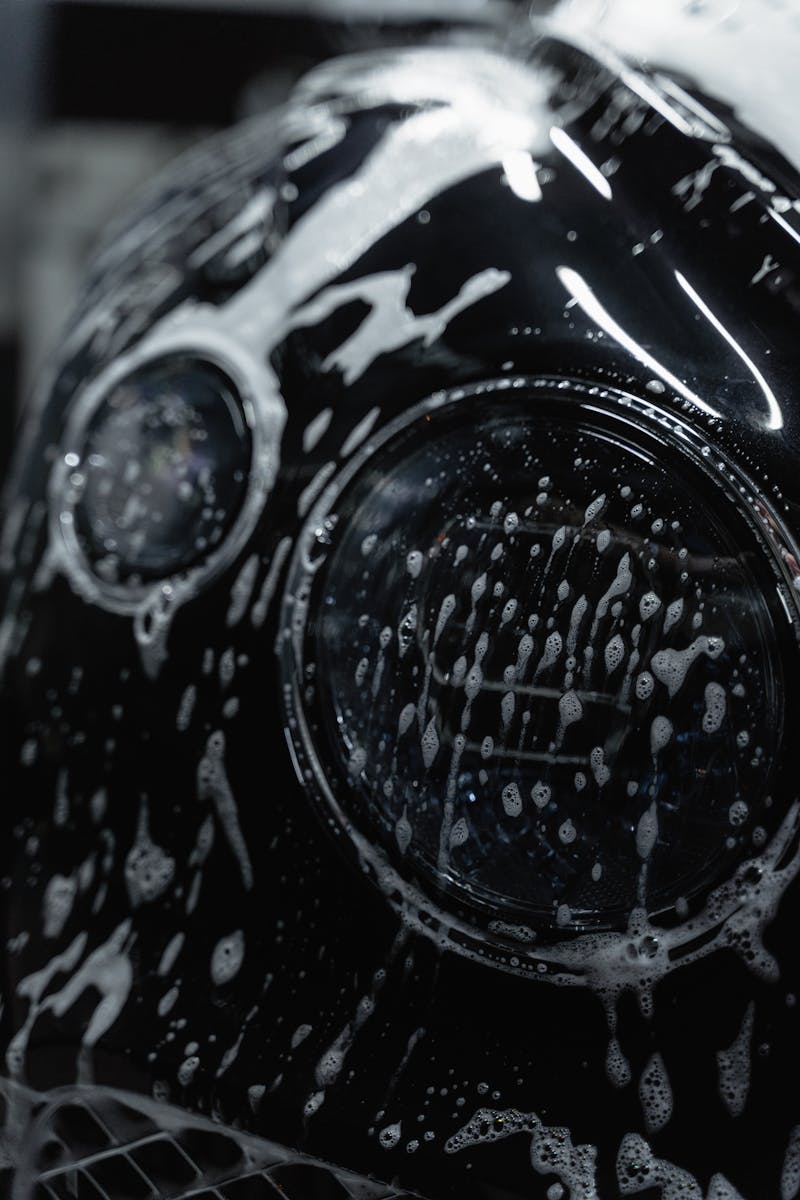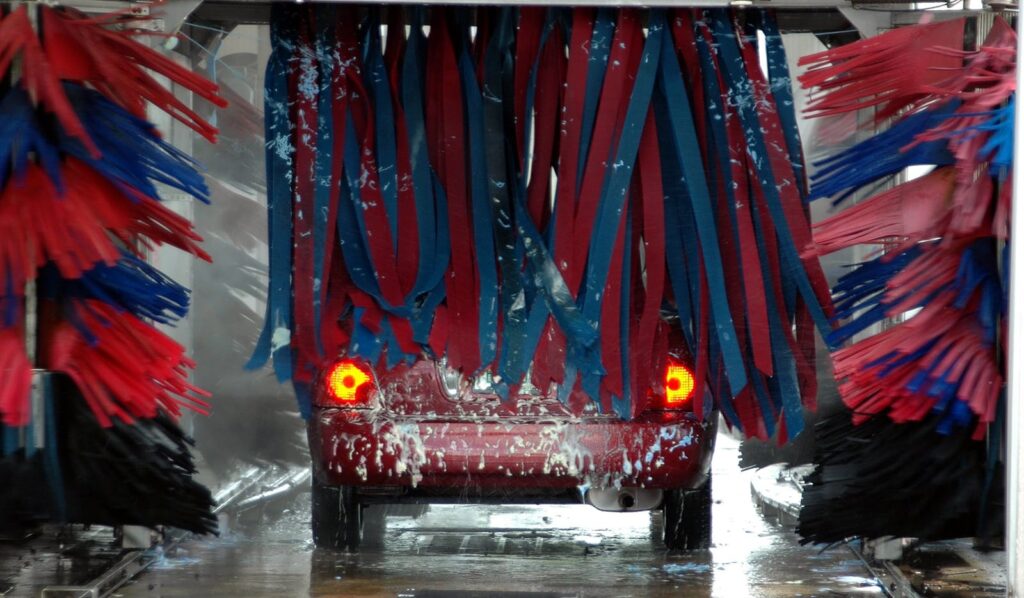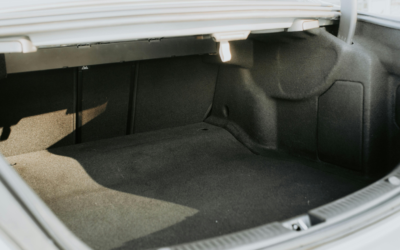Car owners want their vehicles to sparkle, but many don’t realize that their choice of car wash service can significantly impact the environment. From water consumption to chemical runoff, traditional car washing methods often create hidden environmental costs. Understanding these impacts helps you make informed decisions about keeping your vehicle clean while protecting our planet.
The car wash industry handles millions of vehicles annually, using enormous quantities of water and various cleaning chemicals. Some facilities discharge untreated wastewater directly into storm drains, which flow into rivers and lakes. Others recycle and filter their water before disposal. The difference between these approaches can mean the literal difference between protecting or polluting local waterways.
Professional car wash services vary dramatically in their environmental practices. Some prioritize eco-friendly operations with water recycling systems, biodegradable soaps, and energy-efficient equipment. Others operate with minimal environmental consideration, focusing solely on getting cars clean without regard for their ecological footprint.
This guide examines how different car wash methods affect the environment and helps you identify truly green options for maintaining your vehicle’s appearance.

Photo by Erik Mclean on Pexels
Water Usage: The Hidden Environmental Cost
Traditional car washes consume staggering amounts of fresh water. A typical home car wash uses 80-140 gallons per vehicle, while older commercial facilities might use 45-70 gallons per wash. This water consumption becomes particularly problematic during drought conditions or in water-scarce regions.
Modern eco-friendly car wash facilities have revolutionized water usage through advanced recycling systems. These locations capture, filter, and reuse water multiple times before final disposal. Premium car wash services with water reclamation systems can reduce fresh water consumption by up to 80%, using as little as 10-15 gallons of new water per vehicle.
Water recycling technology filters out dirt, soap, and contaminants through multi-stage processes. First-stage filtration removes large particles and debris. Secondary treatment uses settling tanks to separate oils and fine sediments. Final polishing stages employ advanced filtration or reverse osmosis to produce water clean enough for initial rinses.
The location of your chosen car wash matters significantly for water conservation. Facilities near drought-prone areas or those serving high-volume customers should prioritize water-saving technology. Before selecting a service, inquire about their water usage policies and recycling capabilities.
Chemical Runoff and Its Environmental Impact
Car wash chemicals present serious environmental risks when improperly managed. Traditional soaps, waxes, and cleaning agents contain phosphates, petroleum distillates, and synthetic detergents that harm aquatic ecosystems. When these chemicals enter waterways through storm drains, they can trigger algae blooms, deplete oxygen levels, and poison fish and other wildlife.
Home car washing creates particularly severe runoff problems. Driveway washing sends all chemicals directly into storm drains without any treatment. These systems typically connect straight to local rivers or lakes, bypassing water treatment facilities entirely. A single home car wash can introduce enough phosphates into a waterway to fuel algae growth for months.
Professional car wash facilities must follow strict wastewater disposal regulations, but enforcement and compliance vary widely. Responsible operations treat all wastewater before discharge or connect to municipal sewage systems for proper processing. Less scrupulous businesses may cut corners, creating environmental hazards while maintaining clean exteriors.
Biodegradable cleaning products offer a safer alternative for both professional and home use. These formulas break down naturally without accumulating in soil or water. However, “biodegradable” claims require careful evaluation, as some products only partially decompose or take extended time periods to break down completely.
Energy Consumption and Carbon Footprint
Car wash operations consume significant energy for water heating, equipment operation, and facility lighting. Traditional facilities often use natural gas or electricity from fossil fuel sources, contributing to greenhouse gas emissions. A typical full-service car wash might consume 50-100 kWh of electricity daily, equivalent to powering several homes.
Energy-efficient car wash facilities incorporate LED lighting, variable-speed motors, and optimized heating systems to reduce power consumption. Some premium locations install solar panels or purchase renewable energy to minimize their carbon footprint. These investments often pay for themselves through reduced operating prices while providing environmental benefits.
Equipment efficiency varies dramatically between car wash types. Older tunnel systems might use outdated pumps and motors that waste substantial energy. Modern facilities employ computer-controlled systems that optimize water temperature, chemical mixing, and equipment operation to minimize energy waste.
The transportation required to reach your chosen car wash also affects your vehicle’s overall environmental impact. Selecting a nearby location reduces driving distance and fuel consumption. Some eco-conscious customers combine car washing with other errands to maximize trip efficiency.
Express vs. Full-Service Environmental Considerations
Express exterior-only washes typically use fewer resources than full-service options. These facilities focus on basic cleaning without interior vacuuming, hand-drying, or detailed services. Lower resource usage translates to reduced water consumption, chemical use, and energy requirements per vehicle.
Full-service car washes provide comprehensive cleaning but consume more resources per customer. Interior vacuuming requires electricity, while hand-drying uses additional staff time and energy. However, some customers argue that thorough cleaning extends vehicle life, potentially offsetting environmental costs through reduced manufacturing needs.
The frequency of car washing significantly impacts total environmental cost. Customers with unlimited monthly memberships might wash their vehicles weekly for the first month or even daily, multiplying resource consumption. Conversely, occasional users who wash quarterly or seasonally minimize their per-year environmental impact.
Premium wash packages often include additional services like ceramic coatings or specialized treatments. These add-ons require extra chemicals and processing time but may protect vehicle paint longer, potentially reducing washing frequency over months or years.
Identifying Truly Eco-Friendly Car Wash Options
Genuine environmentally responsible car wash services display several key characteristics. Water recycling systems should be visible and actively maintained, not just marketing claims. Ask staff about their water usage rates and recycling percentages. Legitimate green operations proudly share specific conservation numbers.
Biodegradable cleaning products represent another crucial factor. Request information about the soaps and chemicals used in different wash packages. Eco-friendly facilities typically advertise their green cleaning products and may provide ingredient lists upon request.
Third-party environmental certifications provide objective verification of green practices. Organizations like the International Carwash Association offer environmental standards and recognition programs. Certified facilities must meet specific criteria for water conservation, chemical usage, and waste management.
Energy efficiency indicators include LED lighting, solar installations, and Energy Star certified equipment. Some facilities display real-time energy usage or carbon offset information. Others participate in local utility rebate programs for energy-efficient upgrades.
The Home Washing vs. Professional Service Debate
Home car washing seems environmentally friendly but often creates more pollution than professional services. Driveway washing sends all chemicals directly to storm drains, while garden hose usage frequently exceeds commercial facility consumption. Most homeowners lack proper disposal methods for contaminated wash water.
Professional car wash facilities must comply with environmental regulations that don’t apply to residential washing. Commercial operations typically connect to sewage treatment systems or employ on-site water treatment. These requirements ensure proper handling of contaminated water and chemical waste.
Equipment efficiency favors professional operations over house washing. Commercial facilities use high-pressure, low-volume systems that clean more effectively with less water. Home pressure washers and garden hoses often waste water while providing less cleaning power.
However, waterless or eco-friendly home cleaning products can minimize environmental impact for dedicated users. These products require careful application and proper disposal but eliminate water usage and chemical runoff. Some environmentally conscious car owners successfully maintain their vehicles using these methods.
Future Trends in Environmentally Responsible Car Care
Emerging technologies promise even greater environmental benefits for car wash operations. Advanced water recycling systems now achieve 95% water reuse rates, approaching closed-loop operations. Some experimental facilities recycle all water indefinitely, only adding fresh water to replace evaporation losses.
Electric and solar-powered car wash equipment reduces dependence on fossil fuel electricity. Battery-powered vacuum systems, solar water heaters, and grid-independent operations represent growing trends in the industry. These technologies particularly benefit facilities in sunny climates with high solar energy potential.
Biodegradable and plant-based cleaning formulas continue improving in effectiveness while reducing environmental impact. Next-generation products match traditional chemical performance without petroleum derivatives or synthetic additives. Some facilities now offer completely organic wash packages using only natural ingredients.
Artificial intelligence and smart sensors optimize resource usage in real-time. These systems adjust water temperature, chemical concentration, and equipment operation based on vehicle size, soil level, and environmental conditions. Smart facilities can reduce resource waste by 20-30% compared to traditional operations.
How Love My Car Car Wash Practices Eco-Friendly Solutions
At Love My Car Car Wash, their team is committed to protecting the environment while ensuring your vehicle looks its best monday through sunday. Our eco-friendly practices are at the heart of everything we do, making it easy for you to sign up for one of our wash packages with confidence.
We utilize water-efficient technologies that significantly reduce water waste compared to at-home car washing. Additionally, we use biodegradable soaps and detergents that are tough on grime but gentle on the environment, preventing harmful chemicals from entering local waterways.
By investing in state-of-the-art filtration systems, we further ensure that wastewater is properly treated and reused where possible. With Love My Car Car Wash, you can enjoy a sparkling clean vehicle while supporting sustainable practices—convenient, responsible, and stress-free. Contact us today!
Making an Informed Choice for Your Car’s Exterior
Selecting an environmentally responsible car wash requires research and ongoing evaluation. Start by identifying facilities in your area that prominently advertise water recycling, biodegradable products, or environmental certifications. Visit potential locations to observe their operations firsthand.
Ask specific questions about water usage, chemical disposal, and energy sources. Reputable green facilities welcome these inquiries and provide detailed information about their environmental practices. Avoid businesses that seem secretive or provide vague answers about their operations.
Consider the total environmental impact of your car care routine. Frequent washing at an eco-friendly facility might create more environmental impact than occasional cleaning at a conventional location. Balance your vehicle’s appearance needs with realistic environmental considerations.
Support businesses that demonstrate genuine commitment to environmental responsibility, not just green marketing. Facilities that invest in recycling equipment and biodegradable products deserve recognition and customer loyalty. Your choice of car wash service represents a vote for the environmental practices you want to encourage.
Eco-Friendly Car Wash Products
Below is a curated list of a few top products and brands that are leading the way in sustainability and effectiveness:
Eco Touch Car Wash Concentrate – For best results, consider choosing the right car wash mitt for a scratch-free shine.
This waterless car wash solution uses biodegradable ingredients to clean your vehicle without wasting water. Perfect for on-the-go washes or areas with water restrictions. Purchase here
Chemical Guys EcoSmart-RU Waterless Car Wash: A ready-to-use, all-natural formula that eliminates dirt and grime while being safe for the environment. It works effectively without requiring rinsing. Purchase here
Mothers California Gold Car Wash – For those looking for affordable alternatives, check out the best Car Wash options for a sparkling clean. Gentle on car surfaces and the environment, this formula is biodegradable and easily removes dirt while preserving wax protection. Purchase here
Rain-X Spot Free Car Wash- This eco-friendly product gives a spotless finish while being biodegradable, reducing harm to the planet. It’s also phosphate-free, ensuring excellent environmental safety. Purchase here
Meguiar’s G7101FFP Gold Class Car Wash– Combining rich, foam-based cleaning with biodegradable compositions, this product is both car-safe and eco-conscious, ensuring shine and cleanliness. Purchase here
Simple Green Car Wash – Known for its non-toxic and biodegradable properties, Simple Green’s car wash formula effectively cuts through grease and dirt while being environmentally safe. Purchase here
Adam’s Car Wash Shampoo– This pH-balanced, biodegradable formula safely cleans your car without stripping wax or sealants, while being gentle on the planet. Purchase here
These brands and products represent a mindful approach to car care, combining superior performance with environmental responsibility. Explore their offerings and make the switch to greener options today!
Drive Clean, Think Green
Environmental responsibility doesn’t require sacrificing your vehicle’s appearance or cleanliness. Numerous car wash options now provide excellent cleaning results while minimizing ecological impact. The key lies in researching facilities, asking informed questions, and supporting businesses that prioritize environmental stewardship.
Your car wash choice affects more than just your vehicle’s shine. Every visit represents a decision about water conservation, chemical pollution, and energy consumption. By selecting environmentally responsible services, you contribute to cleaner waterways, reduced resource waste, and sustainable business practices.
The car wash industry continues evolving toward greater environmental responsibility, driven partly by consumer demand for green services. Your support for eco-friendly facilities encourages continued innovation and helps establish environmental stewardship as a standard business practice rather than a premium option.






